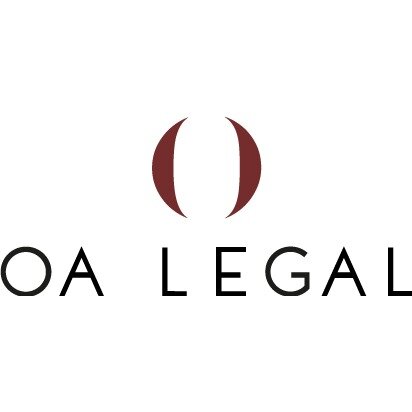Best Oil, Gas & Energy Lawyers in Geneva
Share your needs with us, get contacted by law firms.
Free. Takes 2 min.
List of the best lawyers in Geneva, Switzerland
About Oil, Gas & Energy Law in Geneva, Switzerland
Geneva, a global hub for international diplomacy and trade, plays a significant role in the oil, gas, and energy sectors. Switzerland, though not a major producer of fossil fuels, is home to key international organizations and multinational companies involved in these industries. Geneva, in particular, hosts the headquarters or regional offices of many energy companies and offers a strategic location for legal expertise in energy trading, environmental law, and cross-border transactional work. Swiss law is respected for its stability and its supportive legal framework for businesses, making it a favorable jurisdiction for energy-related legal practices.
Why You May Need a Lawyer
Legal assistance in the oil, gas, and energy sectors is often required for navigating the complex regulatory landscape and ensuring compliance with local and international laws. Common situations where legal advice is crucial include negotiating contracts for energy trading, resolving disputes in cross-border transactions, ensuring environmental compliance, securing permits for energy projects, and managing corporate social responsibility obligations. Expert legal guidance is essential to mitigate risks and protect the interests of businesses and stakeholders involved in these intricate sectors.
Local Laws Overview
The Swiss legal framework governing oil, gas, and energy is multifaceted, encompassing national, regional, and international regulations. Key aspects include:
- Environmental Regulations: Swiss law mandates strict environmental protection standards. Companies must comply with regulations concerning emissions, waste management, and energy efficiency.
- Energy Trading: Geneva serves as a major hub for global energy trading. Laws governing financial transactions, contracts, and taxation are critical here.
- Renewable Energy: Switzerland is investing in renewable energy sources. Laws facilitating the transition to renewables, including incentives for sustainable development and technology, are increasingly relevant.
- International Agreements: Switzerland, not an EU member, often aligns with European policies and participates in international energy agreements, affecting legal practices in cross-border energy matters.
Frequently Asked Questions
What types of energy resources are prominent in Switzerland?
Switzerland primarily focuses on hydropower, nuclear energy, and increasingly, renewable sources like solar and wind. It imports most of its oil and gas.
How does Switzerland regulate environmental impact in energy projects?
Switzerland has stringent environmental laws overseeing emissions reduction, waste management, and protecting natural landscapes, overseen by the Federal Office for the Environment.
Is energy trading significant in Geneva?
Yes, Geneva is a key global hub for energy trading, with multiple multinational corporations operating and engaging in significant commodities trading activities.
What is Switzerland’s stance on renewable energy?
Switzerland encourages renewable energy development through various incentives and policies targeting increased energy efficiency and greenhouse gas emission reductions.
Are there specific laws for oil and gas exploration in Switzerland?
Given the limited natural resources, Switzerland does not focus heavily on oil and gas exploration. However, existing laws emphasize environmental protection and sustainable practices.
Do businesses in the energy sector in Geneva face unique challenges?
Yes, businesses must navigate a complex web of local and international regulations, environmental compliance, and frequent technological innovations.
What role does Geneva play in international energy policy?
Geneva hosts various international organizations and is pivotal in shaping dialogues around global energy policy, trade, and environmental standards.
How does Swiss law handle energy sector disputes?
Disputes are typically resolved through arbitration or mediation, often involving international frameworks given Geneva's international business environment.
Are there opportunities for investment in the energy sector in Geneva?
Yes, especially in renewable energy technologies, infrastructure improvements, and innovative energy solutions to meet environmental goals.
How can energy companies in Geneva contribute to sustainable development?
By aligning with international best practices, investing in clean technology, and adhering to corporate social responsibility standards, companies can significantly contribute to sustainable development.
Additional Resources
Several resources and organizations can provide further information and support:
- Swiss Federal Office of Energy (SFOE): Offers comprehensive guidelines and updates on Swiss energy policy.
- Environmental Protection Agencies: Provide information on environmental standards and compliance.
- International Energy Agency (IEA): A Geneva-based platform for global energy dialogue.
- Trade Associations: Such as the Swiss Oil Association, provide networking and industry insights.
Next Steps
If you require legal assistance in the oil, gas, and energy sectors in Geneva, consider the following steps:
- Research and identify law firms specializing in energy law with a strong understanding of both Swiss and international regulations.
- Prepare relevant documents and information about your case or legal needs before consulting with legal experts.
- Schedule consultations to discuss your specific requirements and assess potential legal strategies.
- Monitor and consider continually evolving laws and standards in energy sectors to ensure compliance and strategic advantage.
By taking these steps, you can efficiently address your legal needs in the competitive and complex field of oil, gas, and energy.
Lawzana helps you find the best lawyers and law firms in Geneva through a curated and pre-screened list of qualified legal professionals. Our platform offers rankings and detailed profiles of attorneys and law firms, allowing you to compare based on practice areas, including Oil, Gas & Energy, experience, and client feedback.
Each profile includes a description of the firm's areas of practice, client reviews, team members and partners, year of establishment, spoken languages, office locations, contact information, social media presence, and any published articles or resources. Most firms on our platform speak English and are experienced in both local and international legal matters.
Get a quote from top-rated law firms in Geneva, Switzerland — quickly, securely, and without unnecessary hassle.
Disclaimer:
The information provided on this page is for general informational purposes only and does not constitute legal advice. While we strive to ensure the accuracy and relevance of the content, legal information may change over time, and interpretations of the law can vary. You should always consult with a qualified legal professional for advice specific to your situation.
We disclaim all liability for actions taken or not taken based on the content of this page. If you believe any information is incorrect or outdated, please contact us, and we will review and update it where appropriate.

















